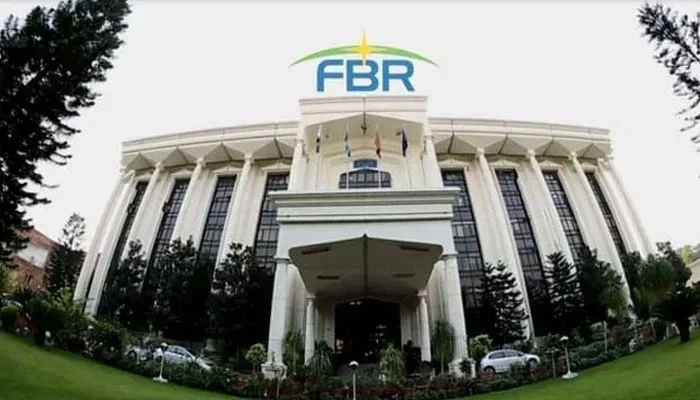Amidst the government’s efforts to increase tax revenue, Federal Board of Revenue (FBR) Chairman Rashid Mahmoud Langrial has defended proposed powers allowing the tax body to arrest CEOs, CFOs, and Board of Directors on charges of tax fraud. He argued that the FBR has assumed powers under the Code of Criminal Procedure (CrPC), as reported by The News on Sunday.
Speaking during a meeting of the Senate Standing Committee on Finance, Langrial supported the proposed changes in the Finance Bill, asserting that no country globally restricts tax officers from making arrests for tax fraud. Citing examples from India and Bangladesh, which grant arrest powers to tax authorities, the FBR chief stated that Pakistan’s workforce comprises 67 million individuals. He revealed that the top 1% of households evaded Rs1,233 billion, while the top 5% evaded Rs1,611 billion. “The remaining 95% of the total workforce evaded just Rs140 billion,” he highlighted.
The FBR chairman’s remarks come against the backdrop of the Rs17.57 trillion budget for Fiscal Year 2025-26, tabled by the government with a target of 4.2% GDP growth. In his budget speech earlier this week, Federal Finance Minister Muhammad Aurangzeb outlined FBR’s tax collection target of Rs14,131 billion—representing an 18.7% increase from the current fiscal year. Of this amount, Rs8,206 billion will be allocated to provinces as their constitutional share in federal taxes, he added.
On the non-tax revenue front, the government has set an ambitious target of Rs5,147 billion, reflecting efforts to optimize income from state-owned enterprises and other non-tax sources. After accounting for provincial transfers, the federal government’s net revenue is estimated at Rs11,072 billion. The total federal expenditure has been budgeted at Rs17,573 billion, with Rs8,207 billion earmarked for debt servicing—a critical component underscoring the government’s commitment to fiscal responsibility.
Expanding on revenue generation in the Senate committee, Langrial contended that the substantial protectionism afforded by tariffs has led to inefficiencies in the domestic market, allowing “systematically unworthy and unqualified sons” to become CEOs with the aid of tariff protections. He urged the committee members to abolish import tariffs to foster a more competitive economy. During the panel’s session, participants also continued deliberations to finalize recommendations for Finance Bill 2025-26, under which the Senate committee recommended removing the 18% GST on the import of solar panels and increasing minimum wages from Rs37,000 to Rs40,000.
Lawmakers Oppose Arrest Powers
Senator Anusha Rahman from the ruling Pakistan Muslim League-Nawaz (PML-N) strongly opposed the FBR’s proposed power to arrest CEOs, CFOs, and directors on allegations of tax fraud. She argued that the FBR was effectively circumventing the CrPC by assuming such powers, questioning how the FBR could justify arrests based solely on the “intent of fraud.”
Senator Farooq H Naek from the Pakistan Peoples Party (PPP) also voiced his opposition to granting such drastic powers. Senator Shibli Faraz from Pakistan Tehreek-e-Insaf (PTI) stated that the country was transforming into a police state and urged the FBR to withdraw the powers being granted to Commissioners of Inland Revenue (IR) and other officers. The committee, on the recommendation of Senator Farooq H Naek, asked the FBR to seize and destroy tampered vehicles.
The chairman of the Senate panel raised concerns that approximately 250 companies had been issued notices under the Anti-Money Laundering (AML) law in the past. He suggested that the issuance of such notices should be linked to prior permission from the Minister of Finance and the FBR chairman. Finance czar Aurangzeb acknowledged that the issuance of notices to the business community under the AML Act was a very serious matter and assured that the government would review the AML powers granted to the FBR.
This issue came to light when FBR Member Customs (Policy) explained the creation of the proposed Directorate General of Intelligence and Risk Management Customs under the Finance Bill 2025-26. The proposed Directorate would be empowered to exercise authority under the AML Act. FBR Member Customs further explained a new section (187A-Presumption as to legal character of vehicle), which states that if any vehicle detained or seized under this Act is found, upon forensic examination, to have a tampered chassis number, a cut and weld chassis, a chassis number filled with welding material, or to be re-stamped or have a changed body, such vehicle shall be presumed to be smuggled, even if registered with any Motor Registration Authority, and shall be liable to confiscation. Senator Rahman additionally questioned why the FBR was criminalizing tax matters and removing CrPC powers.



